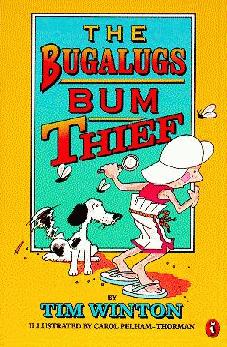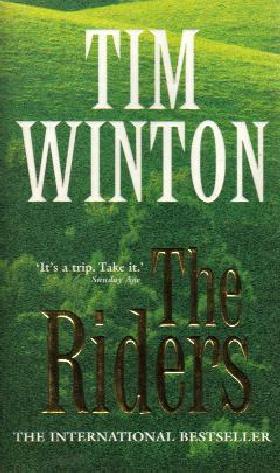
The Riders by Tim Winton, 1994
Cover design by John Landy and Mary Callahan
Pan edition 1995

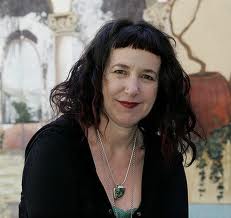 |
Australian fantasy author Isobelle Carmody has a new book out titled Metro Winds. This is a collection of short stories and features a series of takes on traditional fairy tales. The author spoke to Samantha Selinger-Morris for "The Age": |
Why, you wonder, has Carmody taken a proverbial shredder to the usual fantasy archetypes and instead dragged her otherworldly characters through the dross of ordinary life?
''Because I think there's this perception that fantasy and fairytales don't have anything to say about life,'' says Carmody, one of Australia's most successful fantasy writers. ''And the thing is, fairytales were once a very gritty way for people to dialogue about aspects of life. Once upon a time, if you wanted to talk about the notion of child abandonment, of a mother not being a good mother, that's built into the mother who sends the babes into the woods and they use the bits of bread or stones to come home again. [These stories were] a way of looking at these possibilities that you didn't talk about.
''I don't believe in fairies floating around and I don't believe in telepathy but there are things I want to say that just simple real-life stories don't let me say.''
The key to why Carmody would turn to fairytales to explore real-life heartache lies with the author's childhood. Her upbringing has many of the markings of a tale by the Brothers Grimm.
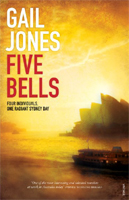 |
The winners of the 2012 Kibble and Dobbie Awards have been announced. Gail Jones won the Kibble Award for her novel Five Bells, ... |
| and Favel Parrett won the Dobbie award for her novel Past the Shallows. | 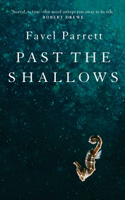 |
Sometimes we are forcibly reminded that Australia is as big as Europe-without-Russia, or bigger. We remark that to send a letter from Brisbane to Melbourne is like writing from London to Madrid, or further. Then we notice that a book, which is quietly published in Melbourne, seems to Brisbane like something foreign, or, indeed, does not seem anything at all, since it is probably unknown. The poet who usually has chosen to be known as "Furnley Maurice," then, has published four sizable books of poems, but none of those books has made him known to Brisbane, and it is necessary to announce them as if they were new.
Four Volumes (1) "Unconditioned Songs."
The first book of Furnley Maurice's poems was not even published under his pen-name. In 1913 this book, "Unconditioned Songs," appeared anonymously, published by S J. Endacott, of Melbourne. The point of mentioning the publisher's name is that, for want of an other, it was taken to be the author's. I remember quite well seeing some striking lyrics from that book quoted in "T. P. Weekly" as the work of "S. J. Endacott Melbourne." So that was all the poet got for his anonymity! The book had considerable recognition, some reading it for the intenser of its little lyrics, and some for the sympathetic child songs. As for the title of the book, I take it to mean that the songs were -- what they were, fresh, free, not written to order. Here is a "Song":--
Give me rivers to cool my hands,The noticeable quality in the whole book was freshness. It was as if you had found some opals in the rough, still in the matrix: it made the poems in many other books seem only like cut glass. Scattered through "Unconditioned Songs" there were, as I have mentioned, a few delightful songs about children, one giving a picture of a tiny boy in some sort of rocking-cart--
Off to Carpentaria,and his tiny downfall. These verses were significant, for it was out of their big brothers that the second large book that Furnley Maurice published was made.
(2) "The Bay and Padie Book."
The whole title of this book was, "The Bay and Padie Book, Kiddie Verses." The intention was modest; a collection of simple little songs and meditations arising naturally out of a happy suburban home, with its typical joys and sorrows. Two little boys are, I suppose, the heroes -- sometimes also the villains. The book has passed through at least four editions, and I am not sure that its rearrangement in the last of them has left a particularly jolly piece in the front. It was a sort of inspired catalogue of delights, each verse ending,
Oh, what a lot of lots of things
For little boys to do!
Other pieces have more realisation of the occasional hardness of life: days in bed with a cold, baths when heads have to be washed and soap gets in a person's eyes, days when you're playing in the garden and nothing goes right, the wind blows toys away, pussy runs off, and
Something comes and compradicksThe book has two distinct kinds of poems in it -- those supposed to be said or thought by the children, which are printed in ordinary type and those that are grown-ups' meditation about the children, printed in italics. This distinction is important, but rather hard to sustain the two kinds overlap here and there. There was that one where the little boy came in quietly and told his mother that he had been out to the pool in the paddock, and "The sky was in the pool!" You are conscious of the awe in the words: it is not a poem for children, for all its actuality. A "Kitchen Lullaby" makes a good song for a very tiny child to hear, and another isolated quatrain makes an evening song of its own:-
Half-past bunny time,(3) "Eyes of Vigilance."
If Furnley Maurice has been best known, in recent years, by the "Bay and Padie Book," his name, ten years ago, was associated with one remarkable poem, first published by itself in 1916, later included in his solid book, "Eyes of Vigilance," which appeared in 1920. That poem was called, "To God, from the Weary Nations," and was first published during the war. It was a piece of dignified musing, an ode with some superb lines, and a fine movement: a poem that met with heartfelt appreciation from many who felt the same, but were doomed to remain inarticulate. It uttered what we have all felt since, if not at the time: the pity of war!' It gives a realisation of
The foe that lies in death magnificent, and cries, with mystic faith,Republished in "Eyes of Vigilance," the war being over, the long poem was called, "To God from the Warring Nations." Professor Walter Murdoch in his second version of an Oxford Anthology of Australasian Verse, printed, "To God, from the Warring Nations," in full, an extraordinary tribute of praise to a poem of such inconvenient length for an anthology.
The rest of "Eyes of Vigilance," which makes a large collection, circles, on the whole, round the theme of that longest poem. There is a large group of sonnets, most of them about the war, and its crashing into the life of man. Here is a sestet:-
These shall return; The mountains and the haze,There was another sonnet, though, published in January, 1918. It was daringly called "Peace, 1918," and throbbed with a lovely radiance of hope. It took for an image a room, and a woman in it with kettles shining and polished, everything in order. In the last line she spoke, "The Prince may come to-night!" And that was written in the darkest of moments that did, after all, just come before the dawn.
(4) "Arrows of Longing."
Of the fourth book it seems hardly fair to speak at all, and yet it contains much of Furnley Maurice's best work. The trouble is that it was published in an expensive and very limited edition, of which probably only a very few copies are left. Some few of the best poems in it have crept into an anthology or two, but what the public needs is a volume of Furnley Maurice collected from all four of his published books, and including the best of what he has written, even since "Arrows of Longing," that large and well-filled book, was published about 1921. If, in "Eyes of Vigilance," Furnley Maurice had been somewhat tendencious, propagandist, in "Arrows of Longing," he is propagandist for beauty only. Perhaps in the early book his theme was pity, and in the later one beauty. It is when he gives this beauty a local habitation that he names her best: -
The drifts of forest light; Perhaps it is for these intense glimpses of beauty in natural things which many have "seen without seeing" that we welcome Furnley Maurice most. It is only right to add that with all his poetical vision he has also a rare wit, and that his critical prose at its highest is very effective indeed. His influence on his fellow writers has all been in the direction of building up a body of literature that should be recognisable as our own,"racy of the soil." A small book of essays, "Romance", published a few years ago, expressed some of his literary opinions.
First published in The Brisbane Courier, 24 December 1927
[Thanks to the National Library of Australia's newspaper digitisation project for this piece.]
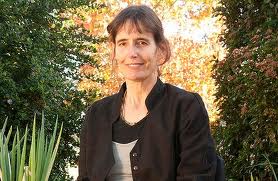 |
The winners of the 2012 Prime Minister's Literary Awards were announced recently. The winners were: Fiction - Foal's Bread by Gillian Mears Poetry - Interferon Psalms by Luke Davies Non-fiction - An Eye for Eternity: The Life of Manning Clark by Mark McKenna Prize for Australian History - The Biggest Estate on Earth: How Aborigines Made Australia by Bill Gammage Young adult fiction - When We Were Two by Robert Newton Children's fiction - Goodnight, Mice! By Frances Watts, illustrated by Judy Watson |
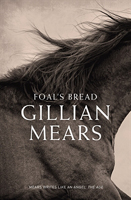 |
Foal's Bread, by Gillian Mears, has been awarded the Australian Literary Society's Gold Medal for 2012. |
Furnley Maurice, whose real name was Frank Wilmot, has just died in Melbourne. One has to live in Melbourne, perhaps, to understand fully the high literary reputation that is his there. But whatever else may be said, it must be acknowledged that for many years he had been a force in poetry and criticism -- not to speak of publishing, for at the time of his death he was manager of the Melbourne University Press.
If he is known at all widely here, it is for his fine poem "To God: from the Warring (originally "Weary") Nations," written in 1917; for his children's verse, "The Bay and Padie Book," and for his more recent "Melbourne Odes," one of which gained the prize in the Dyer Centenary Competition.
Other noteworthy publications of his are "Romance," a collection of literary essays, and the two successive books of verse, "Arrows of Longing" and "The Gully," which are patriotic poems in the truest sense. He once co-edited and published a magazine called "The Microbe" -- clearly a Rossetti culture!
Anthologists, when they consider his work, seem mostly to seize on a piece about a dust-bin, which, if nothing else, will assure him the popular immortality of the back-lane romancer.
Differing Opinions
There are detailed and, I think, generous appreciations of his work in Green's "Outline" of Australian Literature, and Morris Miller's bibliography of the same. My own impression, stamped deeper by a number of readings at various times, is that while his unconventionality in thought and form is admirable, his total achievement considerable, he belongs to the "Phoebus Car-out-of-control" school of poets. As Ben Jonson said about Shakespeare (or didn't he?), he should have put the brake on. In other words, he wrote too much too fast, and almost any one of his longer pieces would bear reshaping, rephrasing, and certainly condensation. This may more readily be believed when I mention that he commonly let himself go in free rhymed verse -- which could often well stop anywhere. His early poems, according to Morris Miller, were remarkable for "brevity of words." That may have been because he began writing under the influence of O'Dowd.
It is too soon, however, to attempt to estimate Furnley Maurice fully. Perhaps his best merit is that he is a poet who can be read by all. What poet could wish more?
First published in The Sydney Morning Herald, 28 February 1942
[Thanks to the National Library of Australia's newspaper digitisation project for this piece.]
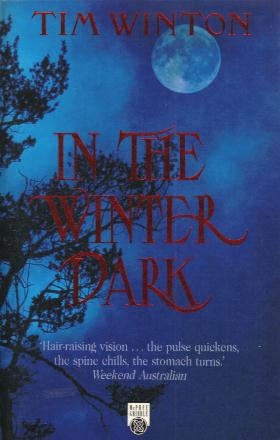
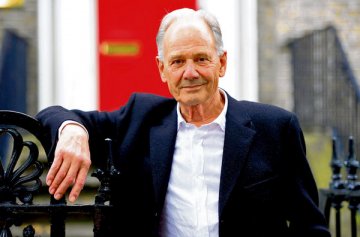 |
Alex Miller is in Europe promoting his latest novel Autumn Laing. When he was in Ireland he spoke to Arminta Wallace for "The Irish Times": |
"One of the pleasures of writing fiction," he says, "is that if you get the setting right, and if you get the story right - the situation blowing up like a beautiful big storm cloud - characters arrive fully formed. And you think, Yes, I'll have that one, and that one; thanks, mate. It's a wonder. And a great delight to see them. They come in out of the mists of nothing, with gestures already developed."
Miller is forthright and opinionated, with the confidence that comes from a lifetime of work in his field - he's 76 - and a plethora of prizes, including two Miles Franklin Literary Awards, a Commonwealth Writer's Prize, even a Chinese Annual Foreign Novels 21st Century Award.
What interests him most in fiction, he says, is the complexity of human relationships. That, he says, is what novels should be about - and what keeps them interesting to us. He achieves this in spades in Autumn Laing, whose gossipy, fully rounded central characters weave an ensemble dance as compelling as any soap opera. He says he wrote the book in five months. "And it's the biggest book I've ever written. But it's all of a piece. All of a mood."
Lately I have been re-reading Louis Stone's novel, "Jonah," first published in 1911. The chief impression it leaves is a secondary one, a feeling of sadness that such fine work should be ignored and forgotten. For it is ignored; people will be saying that they wished Australia had produced a novel about larrikin life in Sydney, a novel which would show our larrikin emerging from push life, and becoming a commercial magnate, a novel showing the contrast between sordid, slumming Sydney, and the exquisite movement and colour of the harbour; well, here is the novel they dreamt of, and they have not read it. I feel inclined to take them on a personally conducted tour through its subtly wrought chapters.
A "Written" Book.
"Jonah" is a book in which every page, as a novelist said to me lately, "feels written." What that means is, I think, that the words are not slammed down in a hit-or-miss fashion. The author has felt aware that he has only, let us say, about ninety thousand words to use, and that there must be no waste pages, no dead paragraphs, no words that are mere counters. Perhaps his best drawn side character is Mrs. Yabsley, the good humoured, selfless old charwoman who becomes Jonah's mother-in-law. The careful drawing of Mrs. Yabsley is a specimen of what I mean by "writing"; every word is faithful to its task, thus:
Mrs. Yabsley came to the door . . . and surveyed Cardigan-street with a loving eve. She had lived there since her marriage 20 years ago, and to her it was the pick of Sydney, the centre of the habitable globe. She gave her opinion to every new-comer in her tremendous voice, that broke on their unaccustomed ear like thunder:
"I've lived 'ere ever since I was a young married woman, an' I know wot I'm talkin' about. My 'usband used ter take me ter the play before we was married, but I never see any play equal ter wot 'appens in this street, if yer only keeps yer eyes open. I see people as wears spectacles readin' books. I don't wonder. If their eyesight was good, they'd be able ter see fer themselvs instead of readin' about it in a book. I can't read myself, bein' no scholar, but I can see that books an' plays is fer them as ain't got no eyes in their 'eads."
The matter does not end there with Mr. Yabsley's dogmatic statement. The author makes you feel that you really do see that street through Mrs. Yabsley's lively, interested eyes. This Cardigan-street is a Sydney variant, perhaps, of the street known as "Little Lon" in Melbourne, celebrated variously by Louis Esson and C. J. Dennis. It is the street of pushes, stray hawkers, family rows ex- pressed out of doors, feuds, struggles, love making, bargaining; yes, it does give you a contempt for people in spectacles staring at a book! Then you suddenly remember that this is all being brought before your mind through the pages of a book, a book extraordinarily weil written. You realise again that the art of letters is a consider- able one.
Jonah Himself.
In very many novels, especially those in a bizarre setting, the hero is negligible, a mere figure-head, as we say, or a tailor's dummy. Not so with "Jonah," whose real name, used in commercial circumstances as time went on, was Joseph Jones. The reader finds no difficulty in believing that Jonah really was a powerful character, powerful in physique and in personality. His physical deformity accompanies our thoughts of him: we remember his tragic tramp and his over-long arms, remember them especially when Jonah is torn between two sets of motives. You feel he is a spirit in prison: yon can even believe in his passion and talent for music, although his only instrument is the mouth organ he won in a shilling raffle. It is important to emphasise this power of Louis Stone's to portray an artistic temperament: very few novelists can make you believe for a moment in the "artists" they describe. Can't we all remember novels in which we are assured that the hero was a wonderful painter, the despair of all rivals alive or dead, and how we felt that nothing less than some "habeas corpus" of his canvases would make us believe for a moment that this dull person ever knew how to mix paint at all? As for the musician in an ordinary novel, with his power of binding his audience in a spell, whatever he played, we usually want to tell him to go and break stones. Jonah does not come before us as a skilled musician, not a prodigy of any sort; but we do believe that he cared for music, and that it was real to him. Parallel to this, we believe in his bewildered physical power and his business shrewdness. Jonah's rise in life through skilled use of advertisement and publicity at a time when such things had not been exploited as they are to-day makes very interesting reading, like a development of some chapters in the early part of H. G. Wells' "The World of William Clissold." Jonah began as assistant to an old-fashioned cobbler, but felt that he was getting no further on. Borrowing a little money, he started an opposition business just across the road. At first he got no custom, his former boss was known, and he was not. Soon, though, hearing his wife say how cheap some baby's bonnet was at four and eleven, he asked if it would really have been dearer at five shillings:-
"Why don't yer say five bob, an' be done with it?" said Jonah.
"But it ain't five bob; it's only four and eleven," insisted Ada, annoyed at his stupidity.
"An' I suppose it'd be dear at five bob?" sneered Jonah.
"Any fool could tell yez that," snapped Ada.
This discussion bore fruit in Jonah's cynically practical business head. He advertised flamboyantly that he would mend men's shoes for 2/11, and women's for 1/11, while his former chief's old dingy sign, from which "the paint was peeling, still said: "Gent's, 3/6; Ladies. 2/6." In addition, Jonah announced a "While You Wait" service, and bribed a friend to come in and read a newspaper, and spectacularly wait. The miracle was done! In a while Jonah had a special trade sign, and a chain of shops, through Sydney suburbs. It is only after this that he draws breath and emerges, for one of two brief episodes, on the Harbour; you then realise that you have been in Sydney all this time, seeing the tapestry from the wrong side -- the seamy side.
Jonah's Mates.
Yet that wrong side, was not all sordid. Jonah's friend of his early push days, known as Chook, was a youth with a pretty wit, and his idyllic little love affair holds very genuine sweetness to the very close of the book. ' And humour -- humour of the heavy, farcical kind in his foolish, selfish, step-mother-in-law; humour of delicate moments in his relations with his sweetheart, Pinkie, with her pale face and hair the colour of a new penny. Chapter by chapter, the episodes of their developing life are charming, and also solid. At the end of the book, though, comes the question of why these episodes do seem to float away from the mind. In some books, the framework is so firm and well balanced that at the close you see every episode even more clearly than while you were reading it. In others, the close means a breaking up. "Jonah" is not quite "fitly framed together"; that is its weakness, in spite of all its other strength. Every chapter is rather too much like a separate still-life study, though not "still" within the boundaries of the separate, lively chapter! The story does not quite carry all the characters along in its sweep: when Jonah takes up his new commercial existence, Chook is never mentioned again except in his wholly separate environment. You never hear Chook mentioning Jonah's rise in life, or comparing it with his own struggles as a green- grocer. You never hear Jonah wishing he had lived on with Chook. They are separated, watertight, further from each other than Cardigan-street was from the Habour. Still, Chook and Pinkie and the rest remain as excellent sketches. The whole book is a sketch-book of types very difficult to capture, and we feel they have been saved for us between the covers of "Jonah." It is a book that certainly ought to be republished and well distributed.
First published in The Brisbane Courier, 7 January 1928
[Thanks to the National Library of Australia's newspaper digitisation project for this piece.]
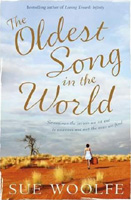 |
Sue Woolfe is probably best known for her 1996 novel Leaning Towards Infinity, which won the South East Asia and South Pacific Region Best Book award in the 1997 Commonwealth Writers' Prize, and the 1996 New South Wales Premier's Literary Awards, Christina Stead Prize for Fiction. She has just published her latest novel, The Oldest Song in the World, and she spoke to Linda Morris for "the Age": |
The extremities of Australia's interior and the blunderings of well-intentioned whites are what salt Woolfe's fourth novel, The Oldest Song in the World, a departure of backdrop and topic for the award-winning novelist who has tended to familiar urban settings in her long fascination with frustrated genius and the bonds between mothers and daughters.
Woolfe's first novel in nine years begins as a familiar fish-out-of-water tale before opening out into a novelistic exploration of the disconnect between black and white culture via a heroine marooned by personal adversity.
...
The interior first beckoned in 2005, two years after publication of her third novel, The Secret Cure, while on sabbatical from the University of Sydney, where she teaches creative writing. Her daughter, Kitty, had been offered work experience in a remote Aboriginal settlement in the Northern Territory and Woolfe accompanied her for an initial two-week sojourn, then stayed for more than a year and a half.
In that dry brush country, nursing children in her lap, Woolfe would muse for hours on what drew the eyes of indigenous women to the horizon, how Aboriginal culture valued companionable silence over idle chit-chat, and the complex web of kin that leaves little room for friendships.
All the while Woolfe wrote, without once inciting curiosity about the thoughts she put on paper. It occurred to Woolfe, a writer by stubborn temperament and profession, that this was a truly non-materialistic, paperless culture. ''I remember walking up the road and it was a sunny afternoon, not too hot, and all the women of the family were lying on a verandah, a lot of undulating bodies, and they were chatting about this and that, and I had this immense sense of what a lonely society we are.''
Young Adults
Crow Country: Kate Constable (Allen & Unwin)
Horses for King Arthur: LS Lawrence (Omnibus Books)
The Coming of the Whirlpool: Andrew McGahan (Allen & Unwin)
The Dead I Know: Scot Gardner (Allen & Unwin)
Only Ever Always: Penni Russon (Allen & Unwin)
Whisper: Chrissie Keighery (Hardie Grant Egmont)
Fiction
All that I Am: Anna Funder (Penguin Group)
Caleb's Crossing: Geraldine Brooks (HarperCollins)
Five Bells: Gail Jones (Random House Australia)
Foal's Bread: Gillian Mears (Allen & Unwin)
The Cook: Wayne Macauley (Text Publishing Company)
The Street Sweeper: Elliot Perlman (Random House Australia)
Scripts
Anytown: Hellie Turner (Jeddah Productions)
Burning Man: Jonathan Teplitzky (Archer Street Productions)
Cloudstreet: Tim Winton & Ellen Fontana (Penguin Group)
Mad Bastards: Brendan Fletcher & Dean Daley-Jones (Bush Turkey Films)
The Good, the Bad and the Baba: Philip Dalkin (Media World Pictures)
Waltzing the Wilarra: David Milroy (Currency Press)
WA History
A Garden on the Margaret: the Path to Old Bridge House: Gillian Lilleyman (Gillian Anne Lilleyman)
Fremantle Port: John Dowson (The Chart and Map Shop)
Government House and Western Australian Society 1829-2012: Jeremy Martens (UWA publishing)
Justice: A History of the Aboriginal Legal Service of Western Australia: Fiona Skyring (UWA Publishing)
Powering Perth: A History of the East Perth Power Station: Lenore Layman (Black Swan Press)
Triumphs and Tragedies: Oombulgurri an Australian Aboriginal Community: Neville Green (Hesperian Press)
Poetry
Armour: John Kinsella (Pan Macmillan Australia)
Interferon Psalms: Luke Davies (Allen & Unwin)
Lines for Birds: Barry Hill & John Wolseley (UWA Publishing)
Surface to Air: Jaya Savige (University of Queensland Press)
The Argument: Tracy Ryan (Fremantle Press)
The Taste of River Water: Cate Kennedy (Scribe Publications)
Children's Books
A Bus Called Heaven: Bob Graham (Walker Books)
Archie's Letter: Martin Flanagan Illustrations by Ainsley Walters (One Day Hill Publishing)
Brotherband 1: The Outcasts: John Flanagan (Random House Australia)
On Orchard Road: Elsbeth Edgar (Walker Books)
Sam, Grace and the Shipwreck: Michelle Gillespie Illustrations by Sonia Martinez (Fremantle Press)
1835: The Founding of Melbourne and the Conquest of Australia: James Boyce (Black Inc.)
An Eye for Eternity: The Life of Manning Clark: Mark McKenna (Miegunyah Press)
Hiroshima Nagasaki: Paul Ham (Harper Collins Publishers)
Her Father's Daughter: Alice Pung (Black Inc.)
Paramedico: Around the World by Ambulance: Benjamin Gilmour (Murdoch Books Australia)
Black Swan: A Koori Woman's Life: Eileen Harrison & Carolyn Landon (Allen & Unwin)
The winners will be announced on September 20.
Mr. Louis Stone, novelist, who died at his home at Randwick on Monday, at the age of 63 years, was the author of "Jonah," a story which dealt with the life of the larrikin element of Sydney of about 30 years ago. It was first published in London in 1911, and re-published in 1933. Mr. Stone was also the author of "Betty Wayside," which was published in London in 1914. He retired from the Education Department a few years ago, for health reasons. He had been first assistant at the Coogee Public School and a teacher at the Sydney Boys' High School. Mr. Stone came to Australia with his parents when 12 years of age, from Leicester, England, where he was born. After some years in Brisbane, he came to Sydney in 1885. He entered the Education Department. Mr. Stone was a fine musician. His wife, formerly Miss Abbie Allen, was a pianist and a member of a prominent musical family. Mrs. Stone survives him.
The funeral took place yesterday to the Randwick Cemetery after a service at the home conducted by the Rev. A Morris who also officiated at the graveside.
The chief mourners were Mrs Stone (widow), Messrs. A. T. Allen, F. W. Allen, S. Allen, Wilfred Allen and Roy Allen (brothers-in-law), and Miss Dora Allen (sister-in-law)/ Others present included Messrs. H. W. Moffitt, T. A. Lawler, J. Wolinski, W. H. Woodward, Scarlett, Mr. and Mrs. William Moore, Messrs. Roderic Quinn, Mick Paul, Green, Davies, C. Kinsela, A. Woolland, W. Lawson, H. and H. W. Webb, Wallace, P. Waterman, Miss Jean Wallace, Mr. and Mrs. H. Julius, Messrs. L. Cutler, W. Barnes, Thornton, Oates, Smedley, Bosward, Mason, Proud, J. Fitzgerald, Mesdames Mooney, N. Lindsay, Green, Flowers, Gibb, Messrs. Singleton, Homer, Martin, C. Morrisby, Misses H. Holloway, Russell, McKern, E. Dwyer, Soutar, Garrett, B. and E. Bubb, Warren, Bertie, and Sabine, Dr. Mackaness, Mesdames Fossell, Buettel, Craig, and Chapman, Messrs. G. L. Dwyer, O. and W. Young, W. S. Russell, and Brown.
First published in The Sydney Morning Herald, 25 September 1935
[Thanks to the National Library of Australia's newspaper digitisation project for this piece.]
